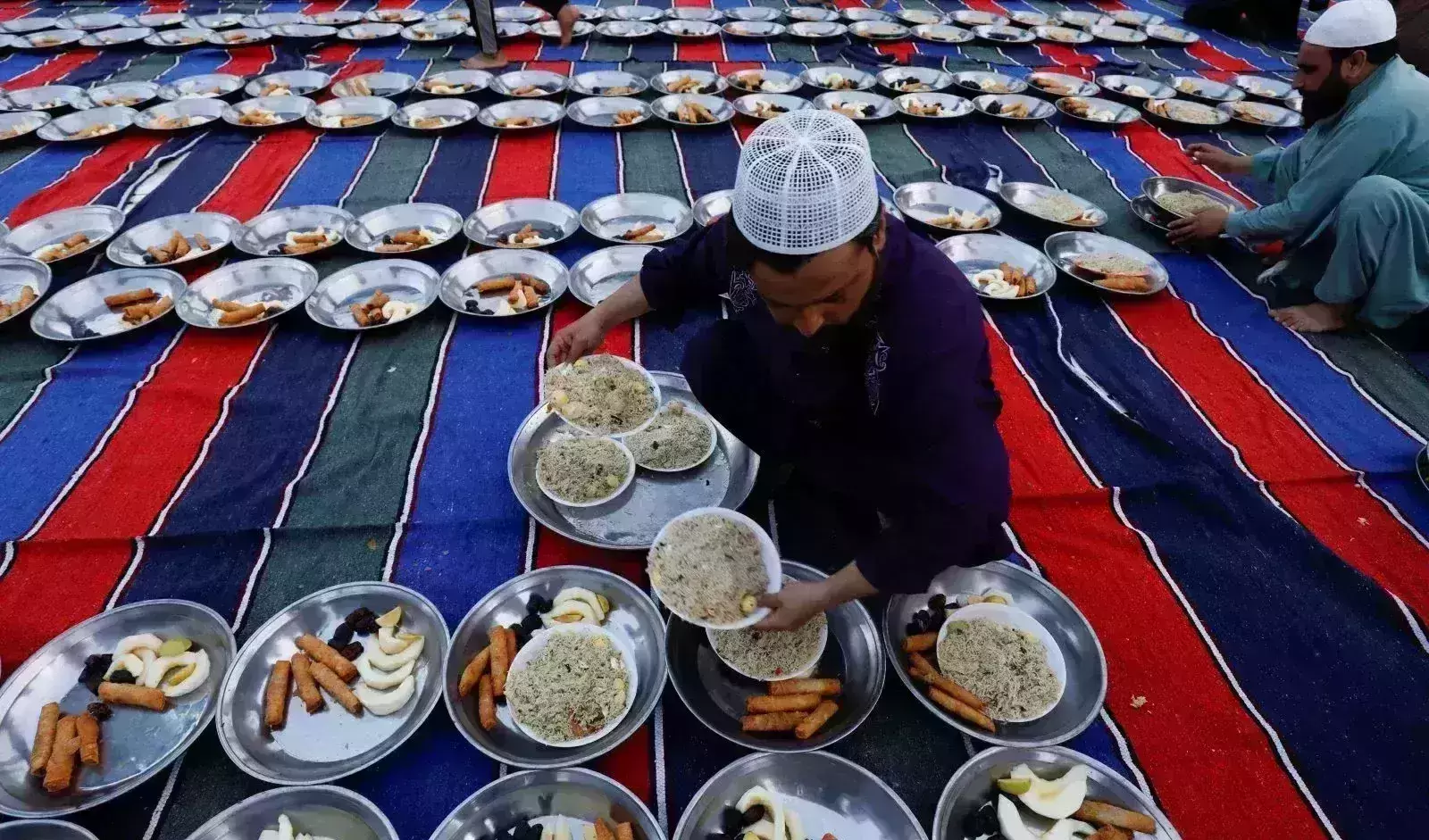
WHO expresses concern about rising COVID-19 rates during Ramadan
text_fieldsRepresentational image only
Cairo: The World Health Organization expressed concern on Wednesday that the COVID-19 pandemic could worsen in the Middle East and North Africa during the Muslim fasting month of Ramadan, Arab News reported.
Detected cases of COVID infection in the region rose 22 percent last week, while deaths rose 17 percent, said Ahmed Al-Mandhari, the Cairo-based chief of the WHO for the eastern Mediterranean.
According to the Arab News, Mandhari said the situation in the vast region reflects a "worrying trend." "We are especially worried that the current situation may worsen during Ramadan if people don't follow and adhere to the proven social measures that work," he told an online news conference.
Ramadan, one of the five pillars of Islam, began in most Muslim countries on Tuesday. Observant Muslims refrain from eating and drinking from dawn to dusk, and traditionally gather with family and friends to break their fast.
"This year, like last year, people may feel that the spirit of Ramadan has changed because of social distancing and lockdowns," said Mandhari. "But the actions that need to be maintained to help contain the pandemic are in line with the basic tenets of Islam: Take care of your physical health and do no harm to others."
Dalia Samhouri, WHO's regional head of emergency preparedness, said the international organization wanted "countries to do a risk assessment in order to prevent the dissemination of the infection."
She suggested measures that could be taken around mosques during Ramadan, including physical distancing, ventilation, and regular disinfection. People who felt sick were advised to stay at home, along with the elderly and sufferers of chronic disease, she said.
Mandhari said all countries in the region had received vaccines, but that those with the most limited access were Yemen and Syria.
"Although progress has been made with starting vaccination around the world, there remains a shocking imbalance in the distribution of vaccines," he said. "This is especially true in our region."
In Yemen, where some 14 million doses were pledged through the Covax program that aims to ensure equitable access to COVID vaccinations, only 360,000 have been delivered.






















